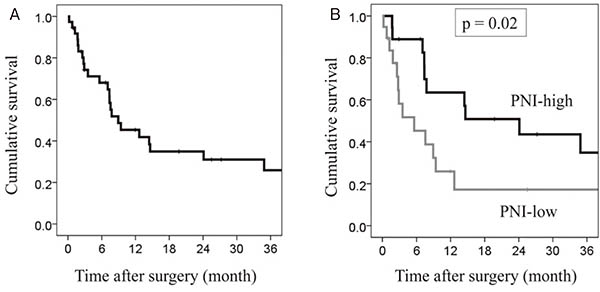- J-STAGE home
- /
- Journal of the Anus, Rectum an ...
- /
- Volume 1 (2017) Issue 4
- /
- Article overview
-
Manabu Shimomura
Department of Surgery, National Hospital Organization Higashihiroshima Medical Center, Hiroshima
-
Kazuhiro Toyota
Department of Surgery, National Hospital Organization Higashihiroshima Medical Center, Hiroshima
-
Nozomi Karakuchi
Department of Surgery, National Hospital Organization Higashihiroshima Medical Center, Hiroshima
-
Kosuke Ono
Department of Surgery, National Hospital Organization Higashihiroshima Medical Center, Hiroshima
-
Naofumi Tsukiyama
Department of Surgery, National Hospital Organization Higashihiroshima Medical Center, Hiroshima
-
Masayuki Shishida
Department of Surgery, National Hospital Organization Higashihiroshima Medical Center, Hiroshima
-
Koichi Oishi
Department of Surgery, National Hospital Organization Higashihiroshima Medical Center, Hiroshima
-
Kazuaki Miyamoto
Department of Surgery, National Hospital Organization Higashihiroshima Medical Center, Hiroshima
-
Masahiro Ikeda
Department of Surgery, National Hospital Organization Higashihiroshima Medical Center, Hiroshima
-
Seiji Sadamoto
Department of Surgery, National Hospital Organization Higashihiroshima Medical Center, Hiroshima
-
Tadateru Takahashi
Department of Surgery, National Hospital Organization Higashihiroshima Medical Center, Hiroshima Department of Gastroenterological and Transplant Surgery, Applied Life Sciences, Institute of Biomedical & Health Sciences, Hiroshima University
2017 Volume 1 Issue 4 Pages 118-124
- Published: October 27, 2017 Received: April 05, 2017 Available on J-STAGE: May 25, 2018 Accepted: June 07, 2017 Advance online publication: - Revised: -
(compatible with EndNote, Reference Manager, ProCite, RefWorks)
(compatible with BibDesk, LaTeX)


